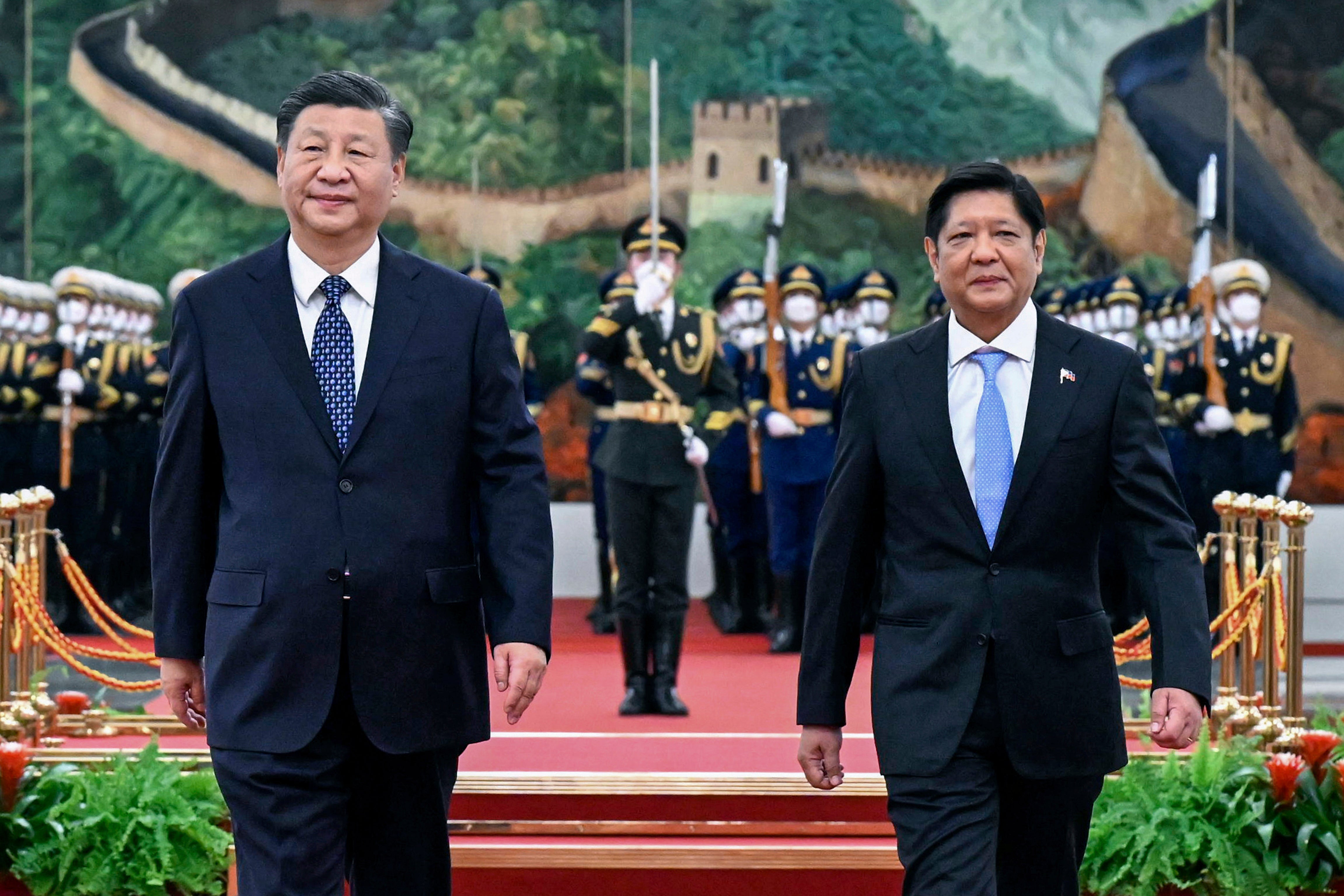Philippine court voids oil exploration pact involving China
The Philippine Supreme Court has declared unconstitutional a 2005 pact by China, the Philippines and Vietnam to jointly explore for oil in the disputed South China Sea

Your support helps us to tell the story
From reproductive rights to climate change to Big Tech, The Independent is on the ground when the story is developing. Whether it's investigating the financials of Elon Musk's pro-Trump PAC or producing our latest documentary, 'The A Word', which shines a light on the American women fighting for reproductive rights, we know how important it is to parse out the facts from the messaging.
At such a critical moment in US history, we need reporters on the ground. Your donation allows us to keep sending journalists to speak to both sides of the story.
The Independent is trusted by Americans across the entire political spectrum. And unlike many other quality news outlets, we choose not to lock Americans out of our reporting and analysis with paywalls. We believe quality journalism should be available to everyone, paid for by those who can afford it.
Your support makes all the difference.The Philippine Supreme Court on Tuesday declared unconstitutional a 2005 pact by China, the Philippines and Vietnam to jointly explore for oil in the disputed South China Sea, a decision that also brings other proposed agreements into doubt.
The decision by 12 of the court's 15 justices voided the Joint Marine Seismic Undertaking agreement by state-owned companies in the three nations, which are among Asian countries locked in decades-long territorial disputes in the busy waterway.
Two justices dissented and one was on leave and did not vote. The court did not immediately make public the full decision and only released highlights in a statement.
President Ferdinand Marcos Jr., who took office in June last year, expressed willingness to revive failed negotiations for joint oil exploration with China in a meeting with his Chinese counterpart, Xi Jinping, in Beijing last week.
The court ruled that the 2005 agreement violated the constitution by allowing the state-owned oil companies of China and Vietnam to undertake joint oil exploration in Philippine waters. The charter specifies that “the exploration, development and utilization of natural resources shall be under the full control and supervision of the state.”
The petitioners argued that oil exploration in Philippine waters should be undertaken by Filipino citizens or corporations and groups that are at least 60% owned by Filipinos, according to the court.
Proponents argued that the agreement only involved pre-exploration activities which were not covered by the constitutional prohibition.
But the court said the accord’s intent “is to discover petroleum which is tantamount to `exploration.’”
The agreement led to a joint oil search in 142,886 square kilometers (55,168 square miles) of sea, including waters claimed by the Philippines as part of its territory and other areas it contests with China, Vietnam, Malaysia, Brunei and Taiwan.
Under President Rodrigo Duterte, Marcos’s predecessor, the Philippines signed a 2018 agreement with China aimed at agreeing on terms for a possible joint oil and gas exploration in the disputed waters. But years of negotiations failed, mainly due to disagreement over which side has sovereign rights over the stretch of sea to be covered by the joint search.
Duterte’s administration terminated the agreement shortly before his six-year term ended last year.
A 2016 ruling by a United Nations-backed arbitration tribunal invalidated China’s extensive territorial claims based on historical grounds in the South China Sea. Beijing did not participate in the arbitration, rejected the decision and continues to defy it.